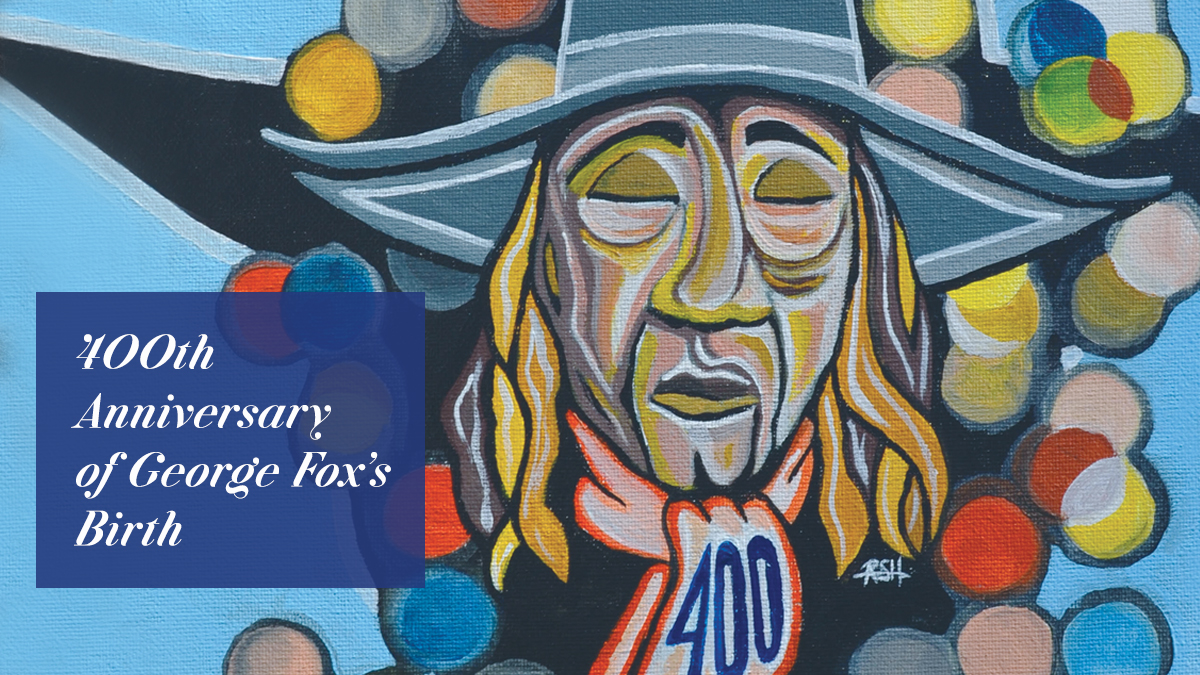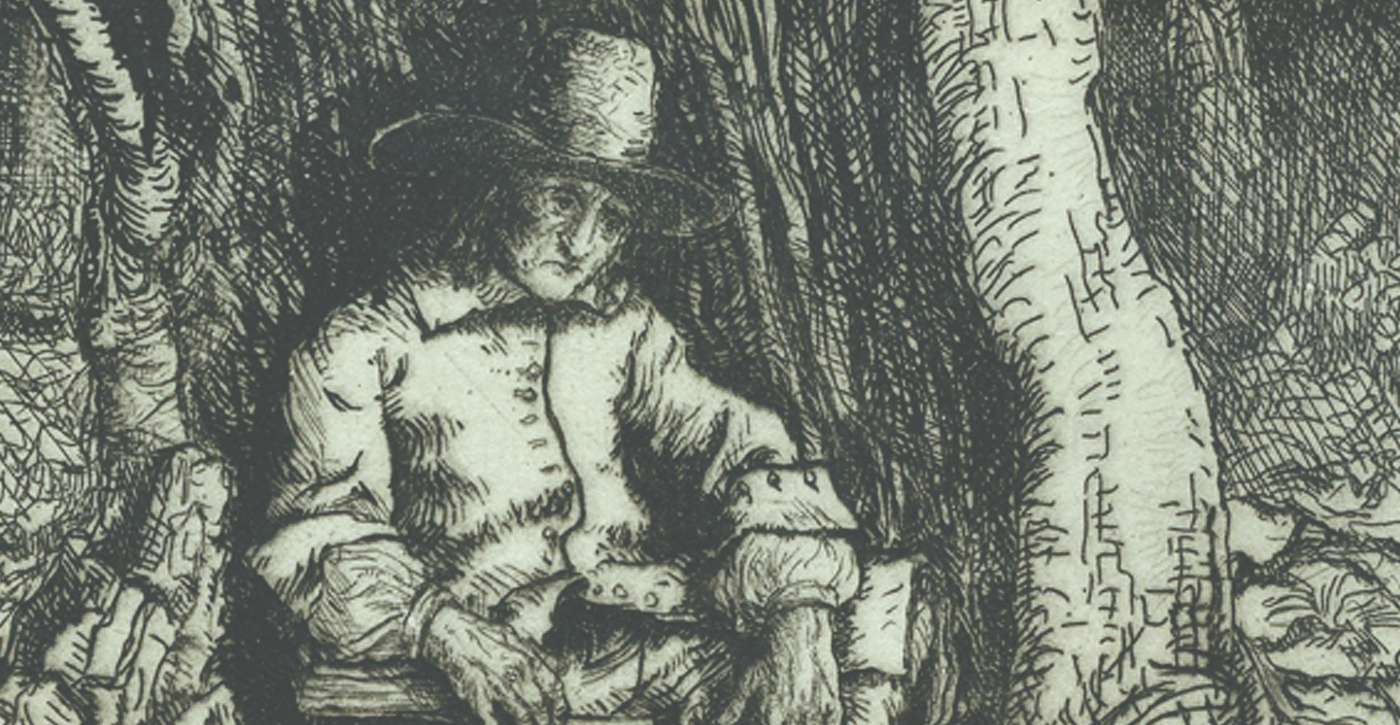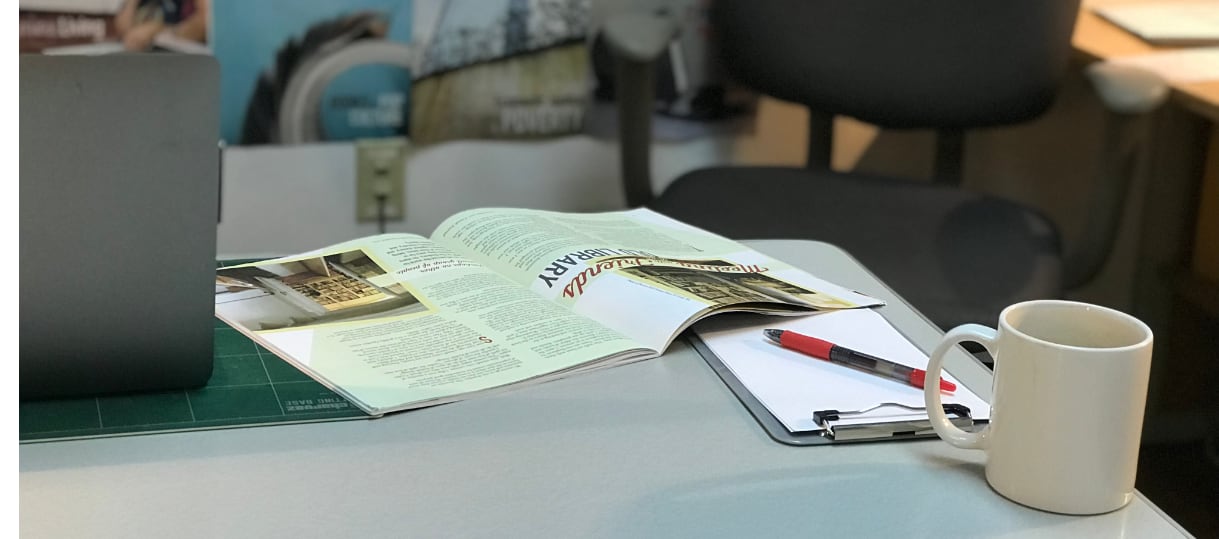George Fox’s Enduring Influence
I grew up in the shadow of an early Quaker, before I ever knew what Quaker meant.
It wasn’t founder George Fox, but rather Dorothea Scott Gotherson, a Quaker minister and writer born in 1611, a descendent of Edward III, King of England. She and her first husband, Daniel Gotherson, joined the Religious Society of Friends around 1657.
My mother would pack up the car and haul my pre-school age twin sister and me from our suburban Chicago home to visit genealogist and distant relative Catherine Soleman Chandler. My mom was fascinated with her maternal ancestors, specifically Dorothea. Later in life, she and my father visited the site of Dorothea’s family home, Egerton House, in Kent. They also visited Friends House Library in London to see the lone copy of the fragile, petite tome A Call to Repentance, which Dorothea wrote to King Charles II in 1661 to chastise courtly behavior. In 1680, Dorothea made her way to Long Island, N.Y., where we presume she died. My mother was never able to locate her grave.
The copy of Catherine Chandler’s two-inch thick manuscript, dated 1967, which I inherited when my mother died, mentions the last family Quaker (Elizabeth Davis Craig) dying in 1870. A letter from a descendent recalls Elizabeth’s daughter telling “stories of the early days in Ohio, her Quaker mother, The Meeting House they attended, the gray dress for Sunday wear.”
I was raised Methodist, yet Dorothea, 11 generations earlier, still loomed in our family history. She came to the forefront for me when, in 1999, I walked into Cincinnati (Ohio) Meeting and never left. On two visits to London, I have carefully leafed through the fascinating pages that link me to her. My daughter, not yet two when we began attending Cincinnati Meeting, has also viewed the book during a semester of study in London.
What I remember most from reading Dorothea’s words is her long struggle with Protestant courtly behavior and seeking God. G. D. Scull’s 1883 Dorothea (Scott) otherwise Gotherson and Hogben Egerton House quotes her:
Then being miserable, and poor, and blind, and naked, and having no helper in the earth, the Lord’s time was then to direct me by the mouth of his Prophets to a light which was placed in darknesse, but darknesse could not comprehend it; but before ever I had heard any of them, or saw any of them, I heard they were a people could lay down their lives one for another, that they were of one heart and one minde; which hearing, raised such a power in me with wrought by love, that I quickly found the report to be true; and then I was unsatisfied continually till I had heard some of them; and after I had heard, I never had one word to speak, or durst think one thought of evil of any of them; for they had directed me to that in my own particular, which did shew me all that I ever had done. Then began I to be led by the Spirit of God out of darkness into his marvellous light; but whither his hand has led me since, and where I have known him most, is too hard to be uttered, or by you to be born.
Scull writes that a 1655 passage from George Fox’s Journal may have included Dorothea:
Returning from Dover, I went to Canterbury, where there were a few honest-hearted people turned to the Lord; who sate down under Christ’s teaching.
According to Scull:
It was very probably about this time that Daniel and Dorothea Gotherson joined the Society of Friends. She became a minister among them, and held meetings, besides writing and publishing religious exhortations.
In a deposition around a land scandal in New York involving Dorothea and naval administrator Samuel Pepys, Thomas Lovelace’s deposition describes Dorothea:
This Mrs. Gotherson had long been a great Quaker, and she had a particular congregation some where about the hermitage, near the two great Brew houses, which went under her maiden name of “Scott’s congregation,” where he has heard her himself preach.
The author travels in ‘1652 Country,’ the sites of early Quaker activity in northern England. Photos courtesy of the author.
Dorothea’s legacy continues to burn bright, lighting the way for my new role as a recorded minister and nurturer for spiritual growth and outreach in my meeting. Our family will reach full circle; Dorothea hovers as a guide.
During a deep meditation a few years ago, a ragtag band of what seemed like guardian angels appeared to me. George Fox was among them. While processing the experience, I understood Spirit was giving me a leading to walk in Fox’s footsteps to England’s Pendle Hill in preparation for my new position. Within five weeks, I was part of a small party of Quakers making the dramatic and beautiful ascent and descent of Pendle Hill. After reaching the top, I stepped to the side of the surprisingly broad swath of almost-mountain to worship alone. I don’t know what I was expecting, making this trek as a pilgrimage and preparation, but what I experienced was a sense of peace and accompaniment that has carried me through the past year.
The journey introduced me to a handful of welcoming Quakers, some of whom assisted a second “1652 Country” trip to England for members of Cincinnati Meeting this past spring.
The group traveling to 1652 Country met for almost a year to become acquainted and form a smaller beloved community. We discussed a myriad of travel arrangements, but we also got to know one another on a different level, outside of worship and worship for business. Years ago a small group from the meeting held an oceanside retreat in North Carolina, the effects of which were profound and pivotal after they returned. I believe we are still living off those ripples of intimate community. I am hopeful the now-stateside 1652 group will inject a similar long-term energy into our meeting.
Cincinnati Meeting is growing, something I believe both George Fox and Dorothea Scott Goetherson would find exciting, and gaining 20-somethings. New members say they are attracted by the welcoming, loving community, testimonies, and silent worship. For years, our meeting for worship would draw around 25 to 30 worshipers every Sunday; more recently, our statistician has noted over 60 attendees at times. Close to 100 attended our most recent Christmas Eve worship.
Our minister and public Friend Jim Newby and I think we offer a good model—the “secret sauce,” we joke—for growth. In turbulent times, people are drawn to the silent worship, deep connection with Spirit, and quiet activism of Quakerism. When they visit Cincinnati Friends, which is a semi-programmed meeting, they are often moved by the depth and personal appeal of Jim’s messages. Once here, we offer newcomers a variety of nurture groups to deepen their spiritual life in intimate community. As Nancy Bieber, one of my School of the Spirit core teachers, and a psychologist, writer, spiritual director, and member of Lancaster (Pa.) Meeting, once said, “I believe one needs to belong to at least one small group with the larger community. We need to belong to a group where we will be missed when we are absent and where we truly feel needed.”
Cincinnati Meeting hosts an annual spiritual nurture retreat, when new groups form and established groups open for new members. We have nine right now, on topics such as everyday mysticism, the Tao Te Ching, intergenerational gathering, antiracism, the spirituality of living, and aging (which uses Parker J. Palmer’s book On the Brink of Everything).
The level of vulnerability and trust exhibited in just two recent meetings of the Spirituality of Living group takes my breath away. Some of us in Cincinnati Meeting have circulated within the same groups so much that we call ourselves “the usual suspects,” so I enjoy the opportunity of being in a small group with people who I haven’t known closely. Several in the Spirituality of Living group are new to Quakerism and others are experienced Quakers. Their enthusiasm and excitement over the depths we’ve already plumbed are infectious. I hear comments like “I’ve never been in anything like this” or “This is such a joy.” I respond, “Welcome to spiritual nurture.”
My goal for nurture groups and my meeting is to develop a beloved community, described by Thomas Kelly in A Testament of Devotion:
When we are drowned in the overwhelming sea of the love of God, we find ourselves in a new and particular relation to a few of our fellows. . . . For a new kind of life-sharing and of love has arisen of which we had had only dim hints before.
The spiritual energy that both George Fox and Dorothea Scott Gotherson preached in the early days of Quakerism created a light that is alive and well in me and in Cincinnati Meeting.












It’s heartening to read about the renewed vitality at Cinncinnati Friends Meeting and to learn about your Quaker ancestor!
Dear Cathy, I am an independent Friend of the Shrewsbury Meeting in NJ. I am fascinated by your ecumenism—the Tao Te Ching—and by Dorothea et al. ‘s call to repentance. I work closely with the Tao and Baha’i communities and interfaith folks of like mind who find that spiritual nature is well beyond the restrictions of any religion, nonreligion, culture, nationality, etc. It is about the human family, free of any separation issues. And are willing to repent of such separations from their subconscious and daily lives. I love the direction of your endeavor.
NJ